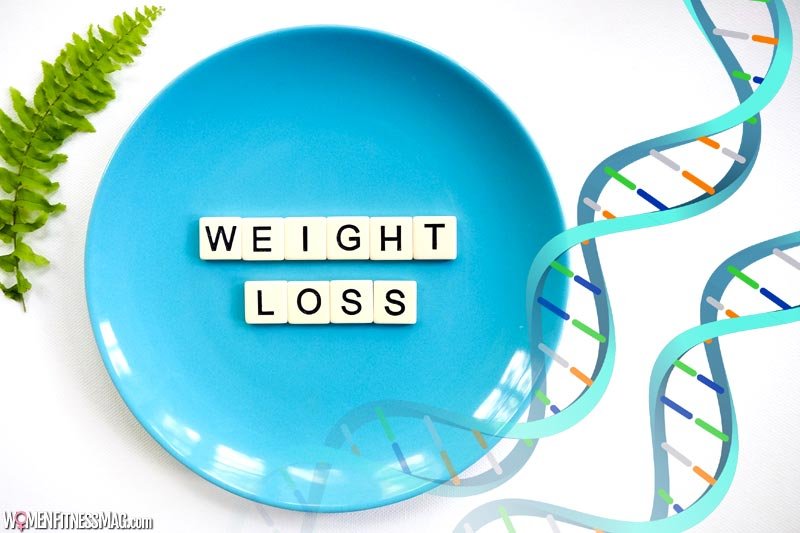What DNA Can Tell You About Weight Loss : We have all pondered why some diets yield remarkable outcomes for some individuals but fall flat for others. Consider DNA testing; the interest in genetic tests as a tool for personalized dieting has spiked, triggering debate among experts.
Although the Academy of Nutrition and Dietetics initially dismissed the utility of DNA tests in providing dietary advice in 2014, recent trends have prompted a reconsideration. Studies focusing on genetic aspects in weight management have surged by 84% since the original stance, indicating a shift in scientific opinion.
The Question of Effectiveness
The efficacy of DNA testing in weight loss is a subject that continues to garner attention from both the public and scientific communities. Initially, the Academy of Nutrition and Dietetics was skeptical, declaring in 2014 that DNA testing held no scientific basis for guiding people on diet and exercise. However, the field has seen an 84% increase in the number of studies exploring the interplay between genetics and weight loss since that statement. The growing body of evidence has led the academy to reconsider its position. Thus, the question of whether DNA can help you lose weight is undergoing a shift from dismissal to serious consideration.
What Does Science Say?
Recent studies have suggested a correlation between genetics and the likelihood of maintaining weight loss over the long term, particularly for those who have undergone bariatric surgery. For instance, specific genetic markers may indicate who will have greater success keeping off the pounds years after the surgery. A systematic review even found that undergoing a DNA test alone could act as a motivator for weight loss when complemented by changes in lifestyle. Although these findings don’t provide an exact blueprint for weight loss, they do indicate that genetics can offer potentially valuable clues. Still, scientists have not reached a consensus, making it evident that more research is needed to establish definitive links.
DNA and Nutrition
Understanding how our genes interact with nutrients might offer additional insights into weight loss. Our DNA codes for specific proteins and enzymes responsible for breaking down food into its nutritional components, such as sugars, fats, and vitamins. The subsequent transport of these nutrients throughout the body is also genetically influenced. Over 100 genes are involved in this intricate process. Recommendations based on DNA test results may include dietary changes, such as reducing fast-food consumption or increasing vegetable intake. However, the complexity of how genes and environment interact implies that DNA testing can’t offer a one-size-fits-all solution. Moreover, other tests like those for blood composition and gut microbiota may be needed to enhance the personalized diet advice offered by DNA test results.
Concerns About Reliability
Despite the growing interest in the intersection between DNA testing and weight loss, there are substantial concerns about the reliability of these tests. No DNA test related to weight loss has received approval from the U.S. Food and Drug Administration (FDA), which raises questions about their credibility. Additionally, the rapidly evolving field of genetics means that interpretations of DNA tests may change over time, causing previous results to become outdated or even incorrect. Genetic testing companies also differ in how they interpret the data, which could result in varying dietary recommendations depending on the service used. These factors point to the conclusion that while DNA tests may offer some insights, they are not a guaranteed or universally accepted approach to weight loss.
Making an Informed Decision
If one is considering DNA testing for weight loss or nutrition, multiple factors should be evaluated for an informed decision. Among the first steps should be to find out if the selected company provides sufficient privacy measures and is transparent about the kind of data the test can provide. It’s equally useful to confirm if the company has support services, such as genetic counselors, to help interpret the test results. In this context, some have found a particular NJ diet review to offer additional insights into how DNA testing can fit into a comprehensive health plan. Verifying a company’s regulatory history, especially any interactions with the Federal Trade Commission (FTC) or the FDA, provides further necessary context. Lastly, set realistic expectations for the test outcome, understanding that it may confirm what is already known. Prioritize speaking with healthcare professionals to ensure the DNA test contributes to an overall well-structured approach to well-being.
Conclusion
While DNA testing seems promising for shedding light on why weight loss is more achievable for some than others, it is not a magic bullet. The results can provide some insights, but they should not replace a balanced diet and regular exercise as primary methods for achieving and maintaining a healthy weight. Remember, the effectiveness of any weight loss strategy involves more than just genetics. It also encompasses lifestyle choices, environment, and a host of other variables.
So, the takeaway is this: if you’re contemplating a DNA test as part of your weight loss strategy, be aware of its limitations and use it as a supplementary tool rather than a quick fix.
Related Videos about What DNA Can Tell You About Weight Loss :
What DNA Can Tell You About Weight Loss
What dna can tell you about weight loss reddit, What dna can tell you about weight loss in india, best dna test for weight loss, dna test for weight loss reviews, dna test for weight loss near me, dna based weight loss, dna test for diet and exercise, dna test that tells you what to eat,




